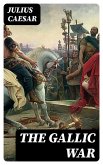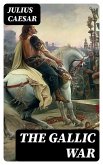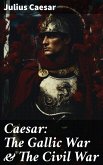In "The Gallic War," Julius Caesar presents a pivotal account of his military campaign against the Gallic tribes from 58 to 50 BCE. Written in a concise, dry, and objective literary style, Caesar's reports are characterized by their clarity, vivid descriptions, and strategic insight, reflecting the conventions of Roman historiography. His first-person narrative offers not only a record of battles and troop movements but also illuminates the complex interactions between the Romans and various tribes, revealing the social and political dynamics of Gaul during a transformative period in Roman history. Julius Caesar, a prominent statesman and military general, composed this work during his time away from Rome, likely to justify his actions and bolster his political standing back home. His dual role as both observer and participant grants unique authority to his narrative. As someone deeply immersed in the intricacies of power, ambition, and governance, Caesar'Äôs keen insights into leadership and military strategy emerge as focal themes throughout the text. "The Gallic War" is an essential read for anyone interested in military history, politics, or Roman culture. Caesar'Äôs articulate first-hand account not only documents a significant epoch but also serves as a timeless reflection on the nature of power, ambition, and the complexities of leadership.
Dieser Download kann aus rechtlichen Gründen nur mit Rechnungsadresse in A, B, BG, CY, CZ, D, DK, EW, E, FIN, F, GR, H, IRL, I, LT, L, LR, M, NL, PL, P, R, S, SLO, SK ausgeliefert werden.









